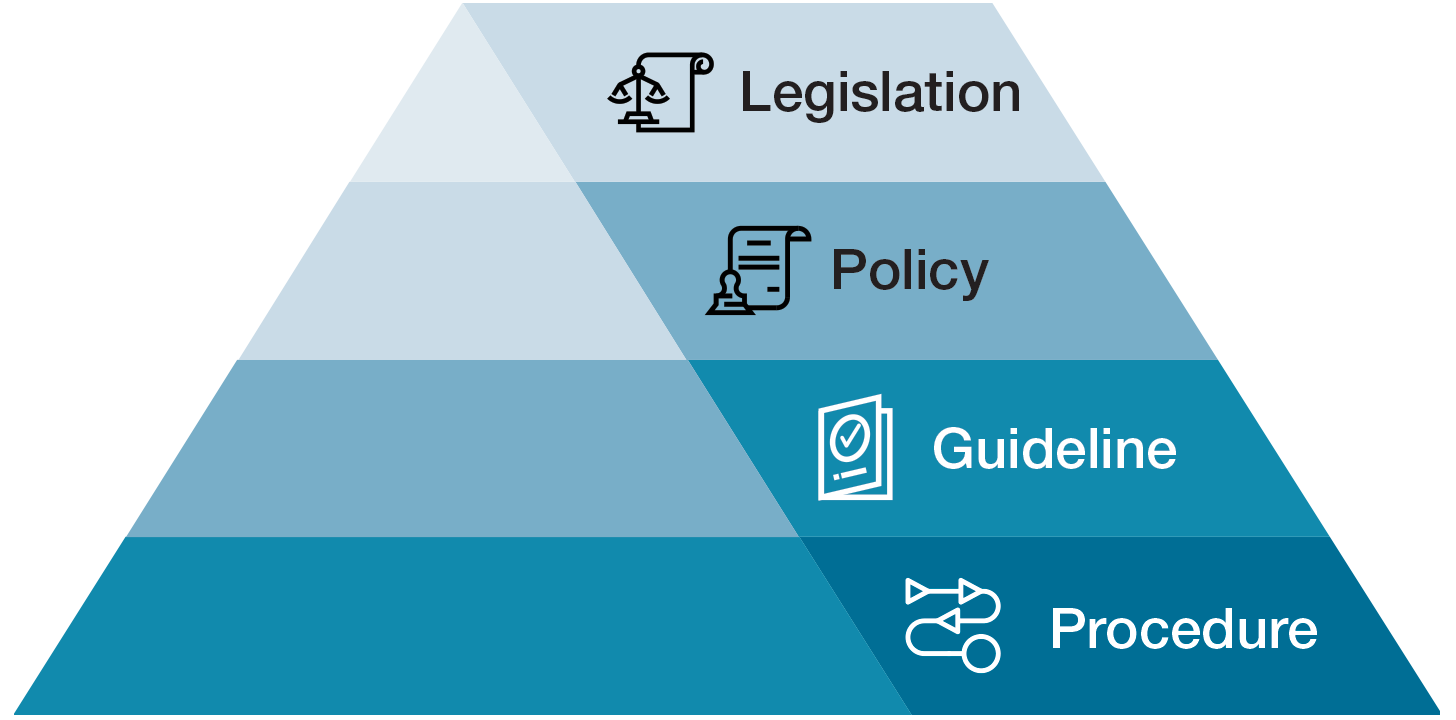The policy framework distinguishes between documents that specify:
- mandatory requirements
- those that provide high level departmental policy positions
- other documents that provide procedural guidance or information on technical and legal matters and the work of the department.
In adopting the framework, all documents are now assigned an appropriate classification in the document hierarchy outlined below.
The following section provides further information on the different levels of the hierarchy and how the department and its stakeholders should apply its water regulatory documents, based on where they fit in the hierarchy.
Legislation
Legislation prescribes functions and authorises the exercise of powers by the Minister and Chief Executive Officer (CEO) and/or their delegates.
Legislation includes primary Acts and associated subsidiary legislation such as:
- Regulations
- rules
- legislative instruments.
The department is required to:
- consider and apply applicable laws in our decision making processes;
- act only within its powers, or decisions made may be considered invalid.
Stakeholders are required to:
- comply with all applicable laws. Stakeholders that do not comply with these laws may incur penalties, up to and including criminal sanctions.
Policy
Policy establishes the key principles, objectives, outcomes and measures that establish our approach to a particular issue.
Policies must be consistent with the department’s administered legislation and align with government priorities.
The department:
- develops and applies policies to interpret and apply applicable laws into our decision making processes. Where the department makes a decision that deviates from a Departmental policy, the reasons for the deviation must be justified and articulated in decision making documents.
Stakeholders are required to:
- comply with departmental policy, or provide robust justification why their circumstances are an exception to the policy position.
Guidelines
Guidelines provide detailed direction to the interpretation, application and implementation of legislation or policy.
Guidelines promote best practice but are not mandatory considerations. They assist in demonstrating compliance with policy objectives or requirements.
The department:
- develops guidelines to assist in demonstrating compliance with policy objectives and requirements.
Note: The department does not need to provide reasons in decision-making documents as to why a guideline has not been followed.
Stakeholders:
- utilise the detailed technical and legal information on specific matters.
Procedure
Procedures outline detailed actions required to achieve a specific outcome, or as part of a decision making process.
The department uses procedures to communicate with stakeholders the steps undertaken by the:
- department to undertake certain processes
- stakeholders to complete certain processes.
Note: The department’s external application forms are also classified as 'Procedures'



